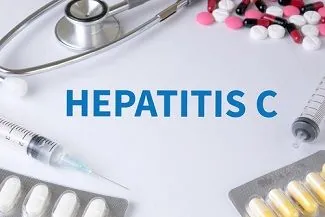
Israel's Bold Battle Against Hepatitis C: Unprecedented Progress and Future Goals!
2024-11-21
Author: John Tan
Israel has rolled out an ambitious national program to eliminate hepatitis C (HCV) under the guidance of its Ministry of Health (MoH). Launched in 2021, this initiative aims to align with the World Health Organization's (WHO) goals, which target a 90% reduction in new hepatitis infections and a 65% decrease in HCV-related deaths by 2030.
As of May 15, 2023, the program has made impressive strides in screening and treatment. According to recent reports, Israel identified 865,382 individuals at risk, with a remarkable 64.3% (555,083) undergoing serological screening. From this pool, HCV was detected in 24,361 individuals, which translates to a 4.4% positivity rate. Among those confirmed to have the virus, 63.9% were found to have active viremia, leading to successful treatment for 80% of the patients, resulting in a sustained virologic response (SVR) rate of 96.5% post-treatment.
The financial aspect of this program has also been evaluated, with costs approximating ₪14,426 (about $3,606 USD) for each person diagnosed and successfully treated for HCV, making it a cost-effective measure for addressing this significant public health issue.
Key Components of the Program:
1. Targeted Screening Initiatives:
To ensure efficient screening, new directives call for mandatory HCV testing for individuals emigrating from endemic regions or meeting specific risk factors. Specialized task forces have been established to reach vulnerable populations, particularly those with limited access to primary healthcare, such as people who inject drugs (PWID).
2. Public Awareness Campaigns:
Focused on educating both health professionals and the general public, the MoH has utilized online tutorials and informational leaflets about HCV's asymptomatic nature and the critical importance of early diagnosis. They’ve gone a step further by launching a dedicated HCV web portal and an informative video on their YouTube channel, ensuring widespread access to essential information.
3. Innovative Patient Registry:
An anonymized patient registry has been created, tracking each individual's progress from initial testing to treatment and eventual follow-up tests. This meticulous data collection is critical for evaluating the program's impact and ensuring patients receive the necessary follow-up care.
Promising Outcomes:
The early findings from this elimination initiative demonstrate significant increases in screening rates among at-risk populations and consistent rises in the number of treated patients. However, while the program is aligned with WHO's 2030 goals, experts concede that complete eradication of hepatitis C in Israel by that deadline may not be feasible. Nonetheless, they predict a dramatic reduction in the prevalence of the disease.
With its strategic approach to combatting hepatitis C, Israel stands as a beacon of hope, demonstrating that significant advancements in public health are achievable when well-planned programs are put into action. The world will be watching as Israel continues its journey towards a hepatitis-free future!
Stay tuned for updates on this remarkable health initiative! What more could be in store for Israel's fight against hepatitis C? Watch this space!



 Brasil (PT)
Brasil (PT)
 Canada (EN)
Canada (EN)
 Chile (ES)
Chile (ES)
 España (ES)
España (ES)
 France (FR)
France (FR)
 Hong Kong (EN)
Hong Kong (EN)
 Italia (IT)
Italia (IT)
 日本 (JA)
日本 (JA)
 Magyarország (HU)
Magyarország (HU)
 Norge (NO)
Norge (NO)
 Polska (PL)
Polska (PL)
 Schweiz (DE)
Schweiz (DE)
 Singapore (EN)
Singapore (EN)
 Sverige (SV)
Sverige (SV)
 Suomi (FI)
Suomi (FI)
 Türkiye (TR)
Türkiye (TR)